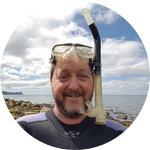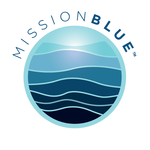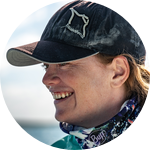About This Project
The Manta Trust are teaming up with the Conflict Islands Conservation Initiative (CICI) to raise funds in order to dedicate a full month of exciting, exploratory manta ray research in the Conflict Islands, PNG. This project will increase our knowledge of the manta rays in this remote region, allowing us to better understand the role which they play in this rich biodiversity hotspot. We hope that the success of this feasibility study will lead to a permanent research project.
Ask the Scientists
Join The DiscussionWhat is the context of this research?
The remote Conflict Islands atoll may be small, but it boasts more than half the world’s coral species, making the atoll one of the richest natural habitats in the world (Mission Blue, 2020). Virtually untouched due to the atoll’s remote location, the Conflict Islands are a haven for biodiversity (Mission Blue, 2020). Home to several shark species including hammerheads, the atoll acts as a key nesting site for critically the endangered hawksbill turtle and the endangered green turtle (IUCN, 2020), with members of the CICI team acting as Reef Guardians to protect the area. This atoll is also home to a population of both oceanic and reef manta rays but little is known about their population dynamics, structure or movements. We hope to change this.
What is the significance of this project?
The isolated nature of these islands mean that they are luckily left largely untouched but also that we have a lot to learn. This biodiversity hotspot is one of the few places where both Oceanic (Endangered) and Reef (Vulnerable) manta rays can be seen together, as well as their cousins, devil rays (IUCN, 2020). This project offers a truly unique opportunity to learn more about these under-studied mantas. Partnering with CICI, we hope to conduct preliminary field surveys to collect manta-ID data to expand our current regional database, sample known aggregation sites and conduct exploratory surveys in search of new cleaning stations and feeding grounds. This research will contribute to efforts to see the focus study area become a legally declared and effectively managed MPA.
What are the goals of the project?
During the feasibility study Dr Murray will join the CICI team to complete:
a) Boat surveys; scope out new and known manta ray feeding sites, cleaning stations, and other aggregation areas.
b) Meet stakeholders to assess current effectiveness and sustainability of conservation management, specifically manta conservation in the region; Discuss how a collaborative project can further efforts to see the focus study area become a legally declared and effectively managed MPA and the project can contribute to implementing more effective management solutions for sustainable manta ray tourism in the Conflict Islands.
c) Undertake manta ray education and awareness event for the CICI staff and stakeholders.
Budget
Our fundraising target will cover the cost of all travel (international and domestic), boat and equipment rental, fuel and logistic expenses needed to conduct the 30-day feasibility study. Any additional funding above and beyond our target will go towards further research in the Conflict Islands, allowing us to continue monitoring this manta ray population.
Endorsed by
 Project Timeline
Project Timeline
With the current Covid-19 pandemic, this plan will be flexible and run in coordination with safety and health regulations. We anticipate that the project will take place in April 2021. Dr Murray will spend 30-days with the CICI team to conduct preliminary field surveys, meet CICI staff and local stakeholders. After completing the feasibility study, we will publish a report on our findings in July 2021 and assess the viability of establishing a full-time Manta Trust affiliate research project.
Jan 05, 2021
Project Launched
Apr 18, 2021
Travel to the Conflict Islands, Papua New Guinea
Apr 21, 2021
Project launch
Apr 22, 2021
Start a series of exploratory boat surveys to scope out new as well as known manta ray aggregation areas in the Conflict Islands.
May 02, 2021
Meet with stakeholders to discuss the how a collaborative project can further efforts to see the focus study area become a legally declared and effectively managed MPA
Meet the Team
Team Bio
Manta Trust: Our goal is a sustainable future for the oceans, where manta rays and their relatives thrive in healthy, diverse marine ecosystems. Our mission is to conserve mobulid rays, their relatives, and their habitats.
CICI: We work closely with communities to provide education, training and improve the conservation of marine ecosystems and associated species. Our efforts are accomplished through abroad range of programs and resources.
Dr Annie Murray
Starting my underwater career as a SCUBA Instructor, I was lucky enough to work in and explore the marine world which was when I discovered my love for manta rays whilst based in Mozambique. Since then, I have dedicated my career to learning as much as possible and conducting research on these incredible animals.
I enrolled on my MSc in Marine Environmental Management at the University of York, as part of which I conducted a summer placement in the Maldives with the Maldivian Manta Ray Project (MMRP), where I discovered my fascination with the social behaviour of manta rays. Combining my role as the MMRP Research Officer with my Ph.D. studies, I spent three exciting years in the Maldives, studying the world-famous Hanifaru Bay MPA, Baa Atoll. Free diving with these animals every day was incredible and offered a unique opportunity to observe their natural behaviour and social interactions.
I have been working as the Manta Caribbean Project Manager since 2018 and love my role researching the population of Atlantic or “Caribbean” manta rays observed off the Yucatán Peninsula, thought to be the third, putative species. Last year, I submitted my Ph.D. thesis and now am excited about my future studying these gentle giants.
Project Backers
- 47Backers
- 102%Funded
- $5,131Total Donations
- $109.17Average Donation


